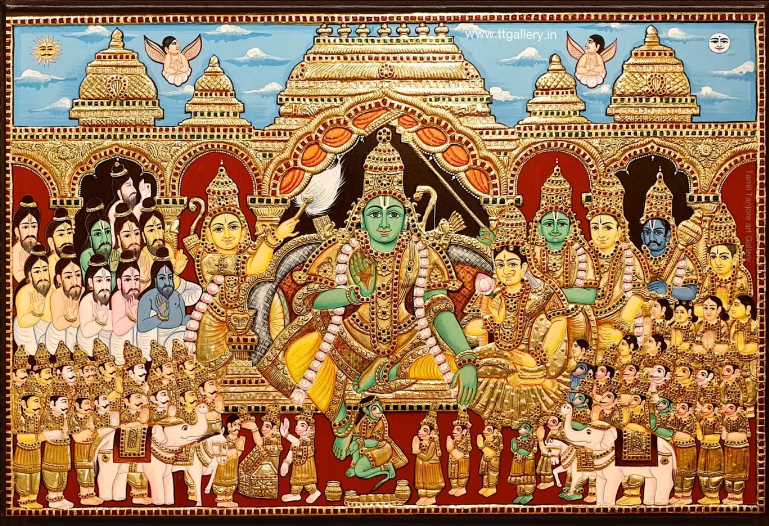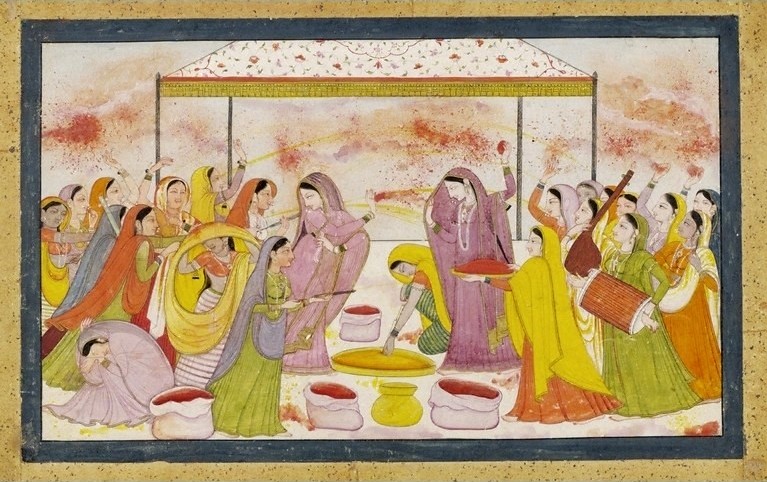




Micro ATMs are card swipe machines through which bankscan remotely connect to their core banking system.
This machine comes with a fingerprint scanner attached to it. In other words, micro ATMs are handheld point of sale terminals used to disburse cash in remote locations where bank branches cannot reach.
Micro ATMs are similar to point of sale (PoS) terminals and are a doorstep mobile banking arrangement cum-mobile ATM device.
They also facilitate cardless money disbursal, using the Aadhaar-enabled payment system (AePS) at remote locations.
Click to View More
Akbar was very broadminded. Ever since his childhood, he was very much influenced by liberal mindsets, like one of his regents, Bairam Khan, who happened to be a Shia Liberal Muslim. Akbar was also influenced by scholars across religions. So, he wanted to work out a synthesis of all religions. His treatment of the Hindus was very tolerant. In fact, he was so liberal in his religious outlook that he attempted to find a new religion, Din-i-Ilahi in 1582 on the basis of good points of all religions. Of course, he made no effort to force his religion on his subjects.
Click to View More
Paintings in South India are famous for their intricate curves and bright colors. There are many schools for painting in South India like the Mysore, Tanjore, Nayaka, Chola and so on. The art form dates back to the early 9th century which was an era dominated by the Chola rulers, who encouraged art and literature.
With time, South Indian paintings developed to turn into a kind of merge of the different traditions which were influencing them. There are different types of South Indian Paintings which are existing today.
Click to View More
The Rajputs were great patrons of art and architecture, who built fabulous palaces and forts. The Rajputs have immensely contributed to the historical and cultural landscape of the country. Rajput Architecture in India reflects an indigenous tradition of religious architecture found in the northern part of India.
Rajput architecture represents different types of buildings. These include temples, forts, stepwells, gardens, and palaces. The forts were specially built for defense and military purposes. Mughal architecture greatly influenced indigenous Rajput styles of art and architecture.
The temple architecture of Orissa, Khajuraho, Rajasthan, Madhya Pradesh and the Pallava, Chola and Hoysala temples in the South belong to the later Rajput period. (900 A.D. to 1200 A.D.)
Some of the temples built by Rajputs include the Rathas in Mahabalipuram and the temples at Ellora. The Pallava, Hoysala, and Chola temples, the Lingaraj Temple in Bhubaneshwar, Jagannath Temple at Puri, and the Khajuraho temples are also built by the Rajputs.
Many of the Rajput forts are UNESCO World Heritage Sites.
Click to View More
Hyper-automation combines various advanced technologies such as Machine Learning and Artificial intelligence, together with Robotic Process Automation.
This technology aims to fully augment human capabilities by building intelligent robotic systems that can do anything a normal human can. These systems are designed to think, reason, compute and collaborate. In essence, it provides an improvement in the human factor in any endeavor. It enables machines to work alongside people in every walk of life.
Click to View More
The Pahari miniature painting school flourished in the foothills of the Himalayas in the northern states of Himachal Pradesh, Jammu & Kashmir and Uttarakhand from around the 16th century. The earliest surviving paintings from the school is the mid-16th century manuscript of the “Devi Mahatmya” illustrating early Rajput style of art, currently preserved in the Shimla museum. With patronage from the rulers of 30-odd Pahari kingdoms that existed in the region, the Pahari miniature school progressed and the art form reached its peak popularity between the 17th and 19th centuries.
Click to View More© 2026 iasgyan. All right reserved